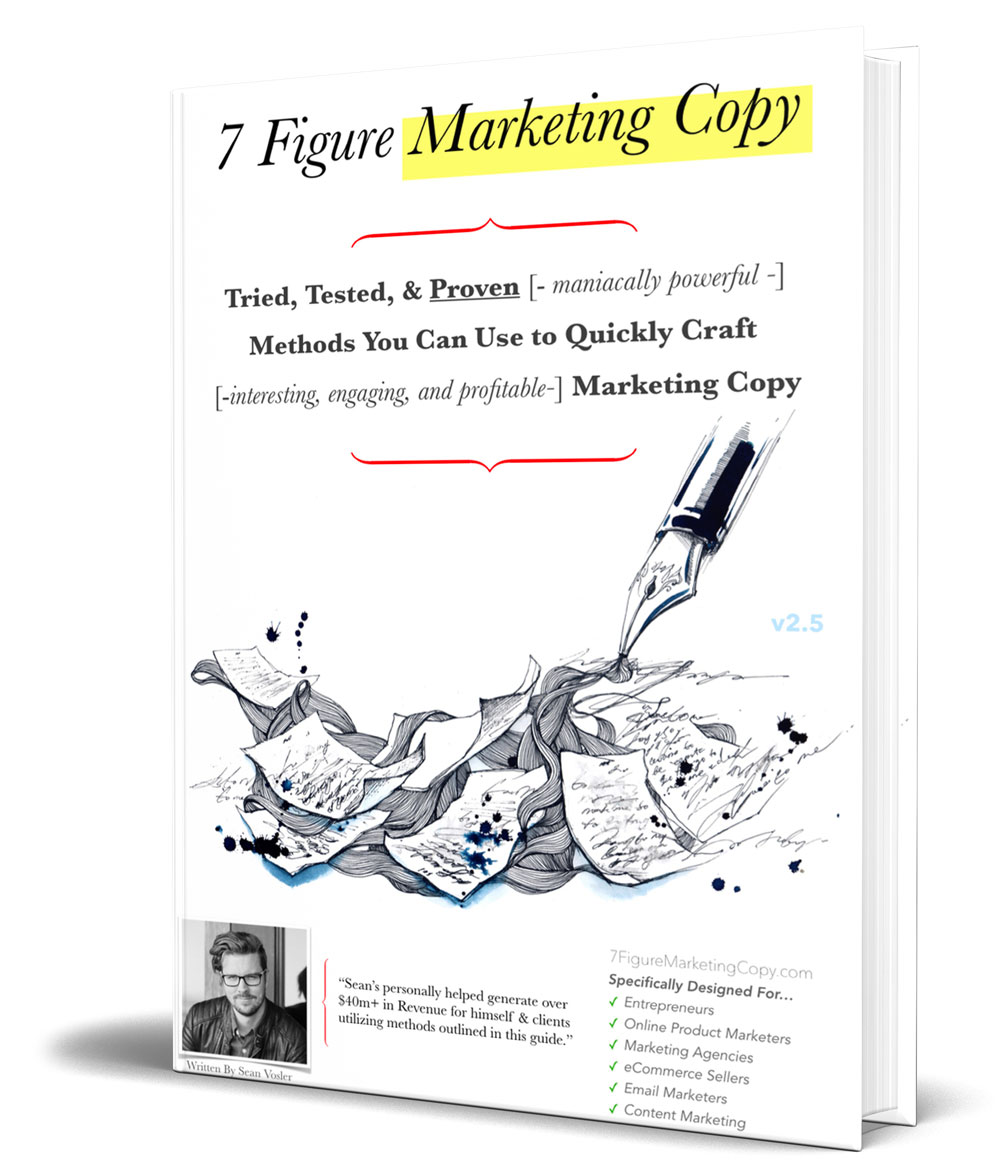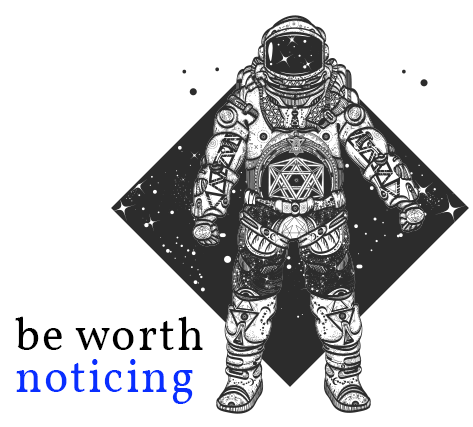my most destructive habit – and my [Crazy] plan to fix it
My destructive, terrible habit? … Not finishing important things.
Lot’s of people don’t finish things, and in fact it’s not a bad thing to know when to quit (The Dip). It’s actually a great skill to know when to throw in the towel on a project and refocus on more important projects with a higher promise of return on investment.
But the habit of giving up regularly, just because SOMETHING ELSE SEEMS EASIER, is a really destructive one. Be it projects, jobs, or relationships – giving up for this reason isn’t healthy.
There’s a difference between giving up on something because it’s hard, and because something else is easier. Lot’s of times we give up because something is hard, and it’s not always a terrible thing. Really it’s called losing, and you can be graceful in admitting you just can’t do something.
Quitting because something else is easier is a bit more insidious. It involves changing your values, the “hard thing” you’re working on is probably worth finishing, worth marking off your list, worth fully understanding. When something else comes along that seems fresh and exciting, a new project – a new idea, it presents us with an easy road, an easy way out.
Going down that road does something really damaging, it takes away your free will. Might seem dramatic, but if your will is to FINISH this ‘hard task’ and you give it up for something easier, that’s what you’re doing. Yep, you shouldn’t do that.
“Disciplining yourself to do what you know is right and important, although difficult, is the high road to pride, self-esteem and personal satisfaction.”
Brian Tracy
So how did I get this habit?
The brain is a tricky thing, it doesn’t always reward us for the right things. In fact your brain really doesn’t have a good compass for what it should release endorphins for. Some of the most destructive addictions are habitual. There’s a lot of science on the subject, but basically it comes down to repetition. You don’t finish something hard once, than you finish something easy – you feel good about it, and little by little your brain is trained to reword these actions.
The bad news.
Depending on how deeply a habit is ingrained you may never be able to fully remove it from your brain. The best you can do is suppress it, not terribly exciting news. With a suppressed habit you always risk a relapse that instantly turns you back into a Netflix watching zombie.
As Scientific America Puts it: “… no wonder habits can be so difficult to break – they become laid down and marked as a seemingly standardized chucks of neural activity, a process involving the work of multiple brain circuits.”
The good news.
Almost all of us have the ability to suppress our tendency to “take the easy way”, it mainly comes down to recognizing when you’re about to go down that road. THAT’S the first step, recognition. Turns out we have a little tool that can help us fight bad habits. Habit’s simply can’t execute without permission from our neocortex. Before we execute any habit (good or bad) we get a quick flash from our good-ole neocortex informing us it’s about to happen “a surveillance system in the brain is at work, like a flight-monitoring system in an airliner.”
You may find yourself opening a new tab and start typing “F-a-c-e-b..” at a certain point your brain will inform you what you’re doing, and you’re presented with a choice. A surprisingly difficult one if you have a habit of checking Facebook every 10 minutes. This flash of recognition is unique to humans, it’s what free will is, even though we have strong habits, each time we execute one we get to choose.
The fix – an important one.
The first step in realizing how to change a habit is knowing that you are presented with a choice during each execution of the habit (see above paragraph). That’s a powerful bit of knowledge. If you habitually check your phone, next time you reach for it try and feel the impulse, acknowledge it. Woah right? Did you feel that? That little twinge right before you click the lock button is your sensory system informing you that you’re about to execute the habit function of your mind. We mostly ignore this, and normally that’s why we can’t really do anything but execute our habit.
Little Test – Consider yourself addicted to your phone? Sitting near it? Look at it and think about checking it, did you get an urge to stop reading this and check your phone? That’s the twinge. That’s the recognition that you’re about to take a habitual action.
Now that you know this happens you have a responsibility to crate a new habit. That’s right, before we can change another habit we need to develop the habit of noticing – noticing that we’re about to execute something good or bad.
The next step is the hardest, you may have a new tab open with “faceb” typed in, but if you realize you have this habit and it is effecting you poorly, you have to STOP. Choose to stop. Even if it seems impossible.
You will fail quite a few times.
And that’s ok.
KEY POINT: You have to replace old habits with new ones.
Someone some where said “a bored mind is the devils playground”, basically what they were getting at is that your epically powerful brain needs habits. They benefit us. And the most successful people you know have powerful habits that influence their lives. We all have bad habits though, one’s we wish to change, so you need to replace these with good habits. What are good habits, what are bad habits? Well that’s for you to decide.
I’ve decided that giving up on hard projects and replacing them with easier ones is a bad habit of mine.
I decided that so I can now take responsibility for it.
What am I going to replace that habit with? We’ll my goal is to replace that destructive habit with the habit of writing out the benefits I’ll gain from finishing the “hard project”.
You get to be a little creative here – I’m not sure if that’s the perfect solution, but it should help. I keep a notebook next to me, when I go to quit something that I know I need to keep working on, now I’m going to try and just write out a few notes of goodness related to the project.
“If I finish this, I know I’ll feel good about completing it”
“When I finish this, I’ll be able to tell my boss and he’ll be pretty excited about it.”
Things that are valuable to me, things I know will motivate me. This is different than trying to replace the “quitting habit” with the opposite right?
Replacing a bad habit with it’s opposite seems awesome on paper, but it rarely works. Ever try and replace watching TV with reading a book? Or eating a delicious pizza with a run? You’re probably going to just say screw it and go the easy way out. You don’t have to replace a bad habit with the opposite, get creative and come up with a middle ground habit. Still might not be the BEST use of your time, but it should be better!

 Let me send you a boatload of copywriting tips...
Let me send you a boatload of copywriting tips...
1 Comment
The habit of forming a morning routine that boosts myself instead of just letting me drag on till breakfast.
Yes if I see a written reminder somewhere then it will let me know when I am going to default mechanism and then as soon as it happens I can snap myself back.
If I follow along with a reward then this will help me anchor the habit more permanently.